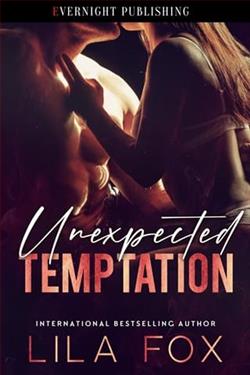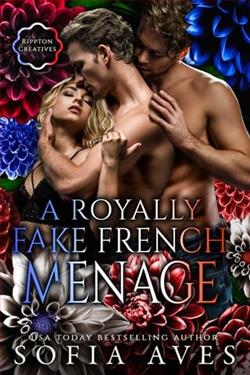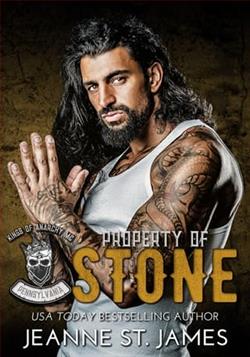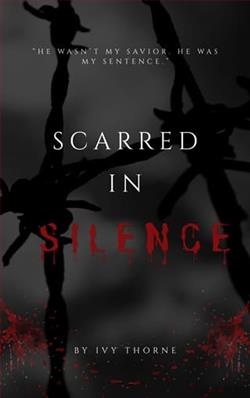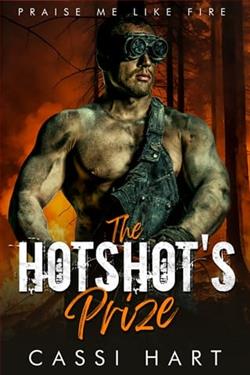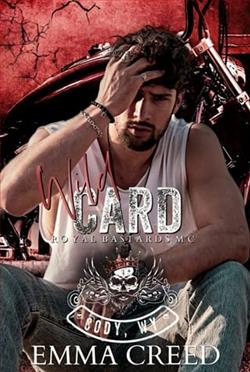Page 51 of Give the Dark My Love
I dropped Dilada’s hand. “Why did you bring me back here?” I asked, not bothering to hide the hurt in my voice. “We could have gone back to the academy without my knowing. You could have spared me.”
“Sometimes, being an alchemist means accepting the limitations of alchemy. It is a hard lesson, but one we must all learn.”
The limitations of alchemy.The book Master Ostrum had given me, the one about necromancy... it talked about there being no limitations.
I bit my lip.
“I want to try something,” I said.
“There’s nothing—”
“Please.”
Master Ostrum stepped back as I pulled out my crucible.The Fourth Alchemyspoke of life and death as if they were both temporary, and it offered incantations that touched on the space between the two. Though necromancers used iron crucibles—the metal forged in a series of dark arts—it didn’t mean I couldn’t try to implement those incantations with my golden crucible. It wasn’t quite necromancy, what I planned to try.
But it was close.
Master Ostrum snapped his fingers for someone to bring us a rat, but I shook my head. My crucible was empty, and that was fine. A rat wouldn’t do anything to help Dilada. Alchemy relied on fair trades of equal value. A rat’s life was nothing compared to hers. If I wanted to give Dilada any chance at survival, she required a human life force.
Mine.
TWENTY-SIX
Nedra
In all theother alchemical trades at Berrywine’s, I was the gate through which pain flowed from the patient into the crucible. But that was reversed now. Now, the crucible was the gate, allowing the plague to flow from Dilada and into me.
I felt the sickness inside her, swirling around the center of the crucible and flowing into me, greedy, wanting to devour her and me both.
Dilada had already slipped into the coma-like sleep of the plague’s final stages, but while she couldn’t feel pain, I was still very much awake and aware of the agony as I attempted to pull the disease from her body into my own. The crucible grounded me, enabling me to tug the strands of the plague into my palm, wrap them around the bones of my fingers, and contain them in one area. Vaguely, I was conscious of the fact that if I let myself go too far, I’d lose my hand or even my whole arm.
But it might save Dilada’s life.
Connecting to her through the crucible felt like trying to force hot black tar into my veins. The disease moved slowly from her to me, boiling my blood and searing my flesh, but when I forced my eyes open, I could see no signs of damage on me, let alone the disease. But I couldfeelit. I could feel it pooling inside of me. I could feel it clawing under my skin, trying to reach up into my brain, to kill me like it wanted to kill Dilada.
She was just a child, really. She had just been trying to survive. She didn’t deserve this.
“Nedra?” Master Ostrum’s voice was deep, hesitant, unsure of whether he should interrupt me. But he knew better than to pull me away. Interrupting an alchemical transfer could prove disastrous for Dilada, for me, for anyone nearby. This was powerful science, volatile and dangerous.
Why am I doing this?The words flitted through my mind, severing the haze of pain, and I almost pulled away from Dilada at the thought. I liked her well enough, but I barely knew her. I had nothing to prove and everything to lose. But it didn’t take love to sacrifice something of yourself for someone else. It just took desperation.
“Come on, come on,” I whispered.
The plague slipped through my fingers like water in a sieve. I was losing ground. As much as it was against everything I wanted to do, I forced myself to pull harder, straining to entice the sickness back to me, away from Dilada.
“Nedra,” Master Ostrum said again, his voice stronger this time. My senses were sharper now. They should have been dulled by the plague; I shouldn’t be able to hear. I cracked my bleary eyes open, and I saw Dilada, still and motionless on the bed. I saw the potion makers gathered around me, their looks a combination of awe and fear.
“You must know when to give up,” Master Ostrum said. He touched my arm, and I could feel his warm grip, the sensation overriding the pain that was already fleeing my body.
“No!” I shouted, finally understanding why I could think and feel and hear so much despite the connection.
Because it hadn’t worked.
Dilada was already dead.
“No,” I said again, although perhaps not aloud. I knocked MasterOstrum’s arm aside and slammed the crucible back into the table, repositioning it and refocusing my energy.
“Brysstain!” Master Ostrum ordered, calling me by my last name, something he only did when I’d angered him. I kicked at him blindly, connecting with one of his legs and forcing him away from me as the alchemical runes lit up again.









